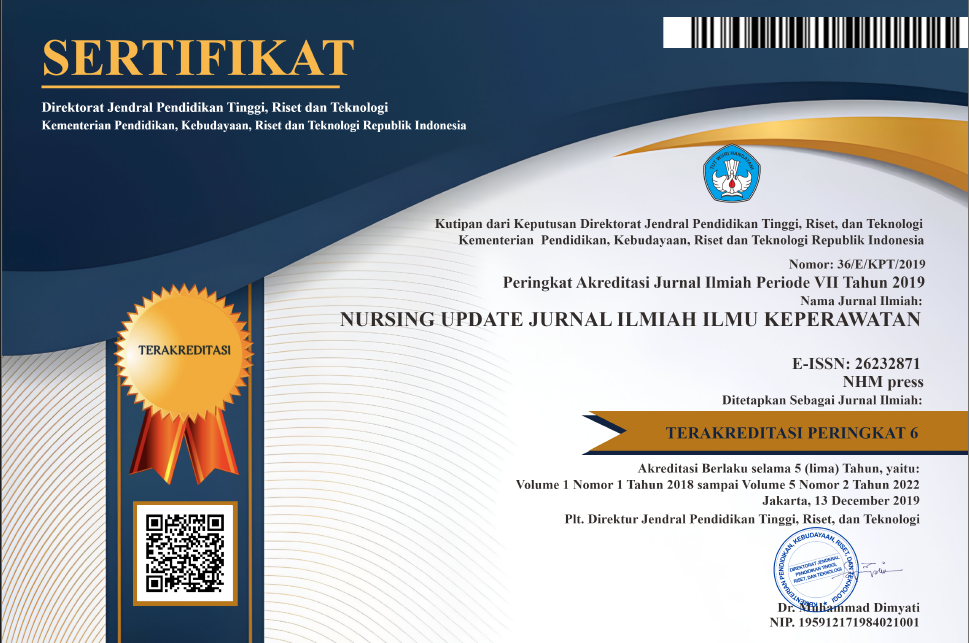UPAYA MENINGKATAN PENGETAHUAN KELUARGA MENGENAI PROGRAM KELUARGA BERENCANA (KB) UNTUK MENCEGAH TERJADINYA KEHAMILAN JARAK DEKAT DI DESA PURBAYASA KABUPATEN PURBALINGGA
Abstract
Pregnancies with short interpregnancy intervals remain a serious public health issue in Indonesia, particularly in rural areas such as Purbayasa Village, Purbalingga Regency. Intervals of less than 24 months between pregnancies significantly increase the risk of complications for both mother and child, and may negatively affect the quality of parenting. This study aimed to evaluate the effectiveness of a family-based educational nursing intervention in improving knowledge and awareness regarding the Family Planning (FP) program as a strategy to prevent closely spaced pregnancies. This research employed a descriptive case study design using the nursing care process, which includes five sequential stages: assessment, diagnosis, planning, implementation, and evaluation. The subject was a pregnant woman with two children, the second of whom was only 1 year and 10 months old. The intervention was carried out through three home visits focusing on the promotion of health behavior (I.12472) and the promotion of family integrity (I.13490). The results demonstrated a significant improvement in the family's understanding and attitudes toward family planning, along with more collaborative and structured parenting practices. The two nursing diagnoses—health behavior at risk (D.0099) and risk of ineffective parenting process (D.0128)—showed meaningful improvements or were resolved. In conclusion, the structured and participatory educational intervention was effective in enhancing family awareness and behavioral changes related to pregnancy planning and child-rearing.










